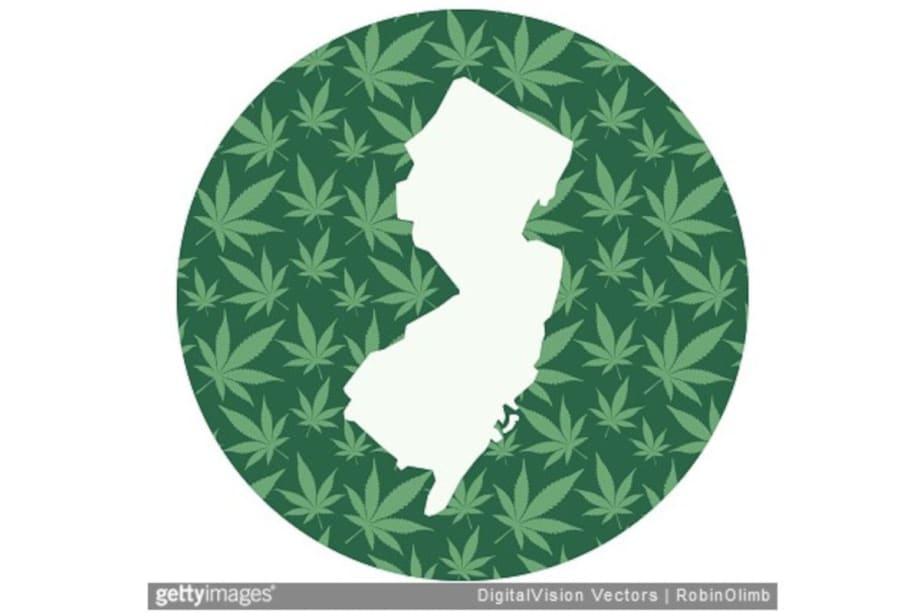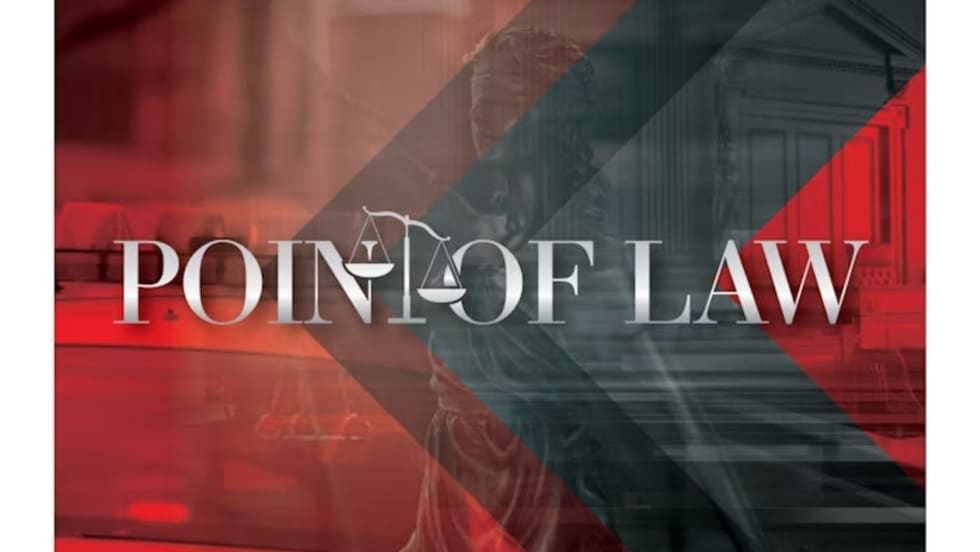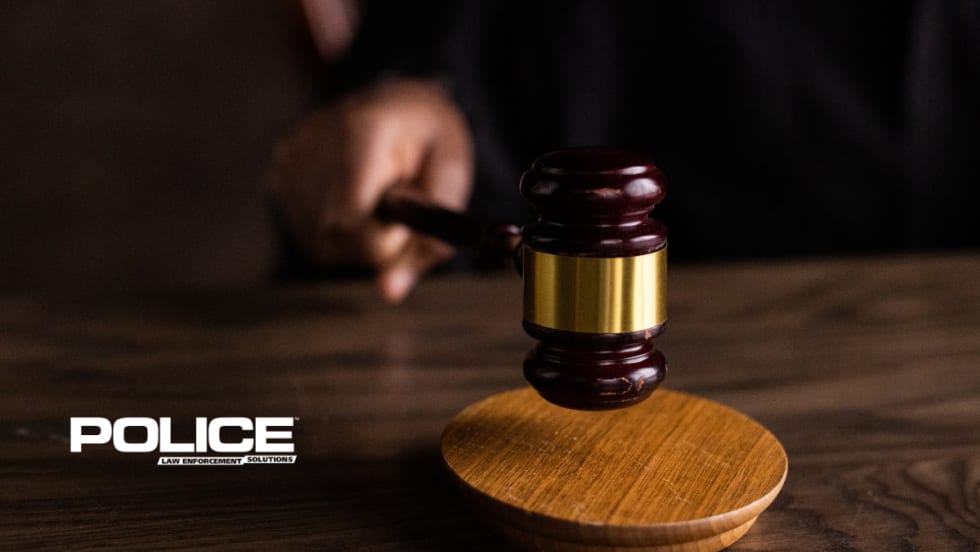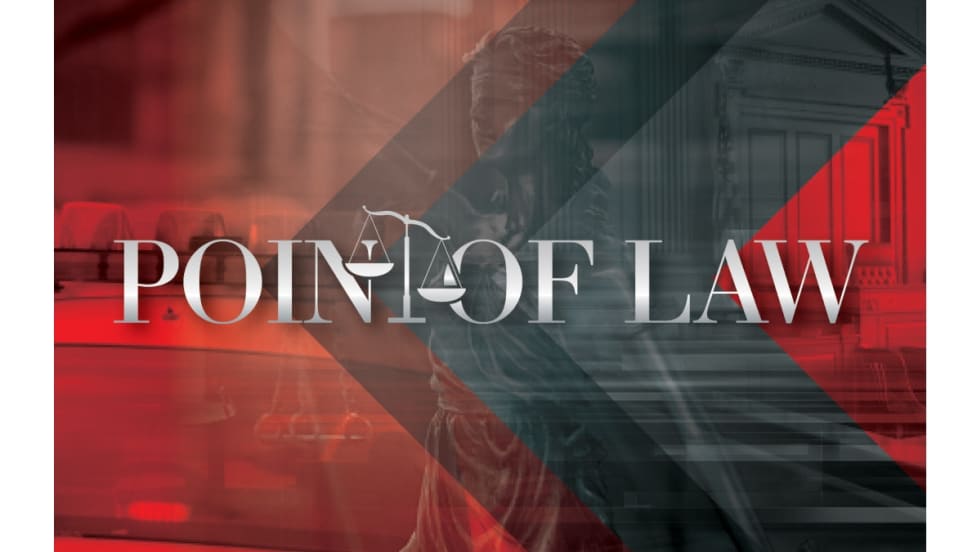When recreational marijuana sales begin Thursday in New Jersey, even police officers will be free to light up while off duty if they so desire. Although other states that legalized marijuana made provisions preventing its use by police, New Jersey has not. But that may change.
New Law Says NJ Cops Can Smoke Pot Off Duty, Officials May Change It
Last week, just ahead of the start of legal recreational marijuana sales this week, New Jersey acting Attorney General Matt Platkin issued a memo to all law enforcement chief executives reminding them that law enforcement agencies in the state cannot take “any adverse action against any officers because they do or do not use cannabis off duty.”

In a press conference Monday, Gov. Phil Murphy clarified that although the current law allows officers to use marijuana just as any other citizen, it is not okay for officers to show up for work impaired either by alcohol or marijuana. Both he and the acting attorney general emphasized that departments are allowed to take actions against officers in this scenario. The governor also voiced support for changing the law so officers will not be able to use marijuana, even while off duty.
“Would I be open-minded to a legislative fix that would address this? The answer is yes,” Murphy told reporters.
Some in state government, such as Senator Paul Sarlo (D), have spoken out against officers being allowed to use marijuana when legal sales commence.
“As mayor and pro law enforcement senator I respectfully disagree w/ directives to allow off-duty police officers to smoke weed. With cannabis remaining in one’s system for 30 days; police will subject themselves to never ending lawsuits & questioning of their judgement,” the senator said in a Tweet last week. “Let me be clear the directive is a product of the law that was enacted. I am hopeful we can modify the law to match all the other states that have zero tolerance for use of off duty cannabis by police.”
Assemblywoman Beth Sawyer (R) also is vocal in her thoughts that police should not be allowed to use marijuana, saying those in public safety must be held to higher standards, according to a statement last week.
“Our men and women in law enforcement have the responsibility to make life-altering decisions on a daily basis, for themselves, their partners, for the public. I want to trust that they are at their best when doing so,” Sawyer says.
Last week, just ahead of the start of legal recreational marijuana sales this week, New Jersey acting Attorney General Matt Platkin issued a memo to all law enforcement chief executives reminding them that law enforcement agencies in the state cannot take “any adverse action against any officers because they do or do not use cannabis off duty.”
His memo was simply a reminder that according to current law, police officers can use legal marijuana while off duty. Platkin reminded the chiefs that according to the Cannabis Regulatory, Enforcement Assistance, and Market Place Modernization Act (CREAMMA), officers are allowed to use regulated, recreational cannabis off-duty. That is the law, until the point at which the general assembly votes to change it.
CREAMMA was signed into law by Gov. Murphy in February 2021, and now the Cannabis Regulatory Commission has approved seven medical dispensaries to start selling recreational marijuana this week. Another 100 small businesses have been given provisional approval so they can start taking steps toward selling legal marijuana. All of this simply follows the will of the people of New Jersey. In November 2020, New Jersey voters approved amending the state constitution to legalize recreational marijuana. The governor says he has been supportive of the legalization of cannabis for social justice reasons, saying the war on drugs had a huge impact on the communities of color.
Advising Police Chiefs
“The law went into effect last year but the sales of recreational marijuana only has been approved as of last week and it will start this Thursday,” says Sayreville Police Chief John Zebrowski, president of the New Jersey State Association of Chiefs of Police. “Prior to that there was no need for an immediate release of this memo by the attorney general’s office, but that law has been in effect for a year. What our acting AG was doing was really putting out a reminder and also kind of a more substantive review of the law for our police executives, so we know what to expect when Thursday rolls around.”
Platkin called this “a major step toward opening the regulated cannabis market in New Jersey” in his April 13 memo to police chiefs and other executives. His memo further states that “CREAMMA does not require law enforcement agencies to permit or accommodate the possession, use, or consumption of cannabis in the workplace.”
Under CREAMMA, departments cannot take disciplinary action against an officer who uses recreational marijuana while off duty. However, the memo from the attorney general's office points out “there should be zero tolerance for cannabis use, possession, or intoxication while performing the duties of a law enforcement officer and there should be zero tolerance for unregulated marijuana consumption by officers at any time, on or off duty.”
Oddly, it appears officers can work as long as they are not impaired, yet marijuana can still be detected in one’s system for an extended period of time.
According to the American Addiction Centers, the presence of marijuana can remain in a person’s system for varying lengths of time based on the type of test administered. The center’s website says with urine testing an infrequent user (less than two times/week) can test positive for one to three days and a moderate user (several times per week) can test positive for seven to 21 days after last use. A heavy user can test positive for a month or longer after last use. Marijuana, and its metabolites, can show up on a blood test for up to 36 hours. Also, marijuana can be detected on a hair test for up to 90 days.
“We will continue, as I said, to update law enforcement drug testing policy and we will have more to say but we’ve given pretty clear guidance about what the law allows and doesn’t allow,” Platkin said in the press conference.
Exclusion
The New Jersey State Association of Chiefs of Police is hoping the state legislature will change the state law, basically amending CREAMMA to make it no longer allow off-duty marijuana use by police officers.
“The chiefs association’s take is that the law as it currently exists has to be modified or amended to be able to get an exclusion for what we call ‘safety-sensitive’ positions, which would include law enforcement. We’re not breaking ground. That is something that in states that have legalized recreational marijuana, many of those states have this exclusion,” says Zebrowski. “We think it is appropriate first for the safety of our employees and, second of all, in order to maintain public confidence and trust.”
According to Zebrowski, other states such as Alaska, Colorado, California, Oregon, South Dakota, Vermont, Michigan, New Mexico, and Massachusetts have legalized recreational marijuana at the state level and have already dealt with exclusion for certain safety-sensitive positions. That exclusion means that police officers are not allowed off-duty use of recreational marijuana. CREAMMA did not include any language about such exclusion, so that is what state legislators likely will address and amend so New Jersey can follow in what the other states have done.
“I believe most states, if not all, had an exclusion written into the law when it was passed,” the chief explains. “Each state may have language that varies to a certain degree, but by and large they all have very similar language that would cover safety-sensitive positions.”
The chief says he has no idea how soon the state legislature will amend the law to include exclusion for safety-sensitive positions in New Jersey, but he thinks there is support. The general assembly however is currently kept busy working on the budget, so likely any possible amendment to CREAMMA will come after that.
“If it does pass in both houses it would go to the governor to be signed. At this stage the governor is on record saying that he feels an exclusion such as that would be appropriate, so it seems like there’s support from the governor,” says Zebrowski. “I would like to think that this is a priority. I hope it’s a priority. I would like to see it passed as quickly as possible.”
But, until state law can be amended to add exclusion prohibiting law officers from recreational use of marijuana, how will police chiefs handle any related situation that may arise? Zebrowski says they will abide by the current state law as it stands now.
“It’s not that we are abiding by the memo of the attorney general, but we have to abide by the law itself. Until the law is changed, and really the AG was only regurgitating what the law says, we have to follow the law and in fact the law says that we could be subject to punitive actions if we take some type of disciplinary action against someone who tests positive for marijuana,” says Zebrowski.
Schedule 1 Narcotic
Marijuana, at the federal level is an illegal controlled substance. However, the federal law does not apply to marijuana use and possession when done according to legal guidelines in a state where its sale and use has been approved and is regulated.
“Marijuana remains a Schedule I illegal drug on a federal level. What permits certain states to allow the sale of recreational cannabis is a decision, that I believe came from our U.S. attorney general, that basically said when a state decides to decriminalize or allow for recreational cannabis economy or marketplaces, there would not be enforcement of the federal law,” explains Zebrowski. “We’re not in conflict based on that ruling from the U.S. attorney general by not enforcing the federal law, so that is first. The second part of the federal law is there is some prohibition when it comes to firearms where those that possess or use illegal substances, illegal drugs, are prohibited from possessing firearms, which would seem to indicate that if you are a police officer who utilizes marijuana off duty you would be prohibited as well. But apparently there is an exclusion in that federal law that says if the firearm is owned by a government entity it can then be possessed for those purposes. That is a little counterintuitive, but that is the world that we are working around at this point.”
Drug Testing
According to the acting attorney general’s memo, CREAMMA does make allowances for drug testing related to possible cannabis use by an officer in certain situations. Law enforcement agencies are to continue to maintain a drug-free and alcohol-free workplace including the prohibition of marijuana both regulated or illicit. However, should there be reasonable suspicion of an officer’s use of cannabis while engaged in the performance of their duties, or upon finding any observable signs of intoxication related to cannabis use such as a work-related accident subject to investigation by the agency, then that officer can be required to undergo a drug test. Per CREAMMA, the drug test shall include “scientifically reliable objective testing methods and procedures” such as testing of blood, urine, or saliva, and a physical evaluation to determine the officer’s state of impairment.
Powers of an Acting AG
Platkin, who issued the memo to law enforcement leaders, is the acting attorney general of the state and has yet to be confirmed by the senate. However, there is no differentiation between the powers of an acting attorney general and an attorney general under New Jersey law. The senate has been slow to approve Platkin, who was nominated by the governor on Feb. 3. The process is being held up by senatorial courtesy.
“As part of the senate’s confirmation power, it’s advise and consent power, part of their process is called senatorial courtesy. The way that it works is if you are a state senator in the county where the appointee lives, then you have the ability to hold up that nomination until you are satisfied it should move forward,” explains Micah Rasmussen, of The Rebovich Institute for New Jersey Politics at Rider University. “It is an informal process; it is not written anywhere.”
Sen. Richard “Dick” Codey (D) is exercising senatorial courtesy right now. He will not acknowledge why he is doing so when he is asked, according to Rasmussen. Codey is a well-respected member of the senate, a former senate president, and a former governor. People in Trenton still refer to him as “governor.”
“In the meantime, Platkin has all the powers of the office in that acting capacity that he needs. It is not as if he is being held back,” says Rasmussen.
In New Jersey, according to the states 1947 constitution, two constitutional officers are appointed by the governor rather than being elected by the people. The attorney general is one of those positions and once appointed, which sometimes is also termed as nominated, an attorney general serves for the duration of the governor’s term of office.
Zebrowski said he does not think Codey’s use of senatorial courtesy and holding up the confirmation is connected to Platkin’s memo or the issue of the law allowing off-duty use of marijuana by officers.
“Public safety continues to be at the forefront here. We re-launched campaigns through our highway safety division to address driving under the influence and we continue to work with law enforcement,” Platkin said in Monday’s press conference. “The fact that recreational cannabis is now coming online is something that we have prepared for, and we have been working with law enforcement to address.”
More Point of Law

Point of Law: The Limits of Electronic Searches
Can an individual be prosecuted for despicable criminal conduct based on evidence obtained in violation of the United States Constitution? Ultimately, the Ninth Circuit judges wrote, “In the circumstances of this case (United States v. Holcomb, 23-469 (9th Cir. 2025)), respect for the Constitution and the rule of law requires an answer of “no.”
Read More →
Trump Issues Order Cutting Federal Funding in Cashless Bail Jurisdictions
<strong>“</strong>Cashless bail policies allow dangerous individuals to immediately return to the streets and further endanger law-abiding, hard-working Americans because they know our laws will not be enforced,” the administration said.
Read More →
Justice Department Sues Los Angeles Over Sanctuary Policies
The DOJ said in a press release that the “sanctuary city” policies of the City of Los Angeles are illegal under federal law.
Read More →
Understanding Officer-Created Jeopardy
Officers can be criminally prosecuted for using force when their actions led to escalation during contact with subjects.
Read More →
Point of Law: The Limitations of Search Warrants
In the Tenth Circuit case of Cuervo v. Sorenson, the Court ruled officers cannot deviate from the language of the warrant.
Read More →
DOJ Dismisses Consent Decrees Affecting Louisville and Minneapolis Police
The Civil Rights Division will be taking all necessary steps to dismiss the Louisville and Minneapolis lawsuits with prejudice, to close the underlying investigations into the Louisville and Minneapolis police departments.
Read More →
New Michigan Bill would Give Officers Civil Immunity in Self-Defense Cases
House Bill 4404 would create a presumption of civil immunity for individuals who are cleared criminally after using force in self-defense, shifting the burden of proof onto plaintiffs.
Read More →
Seattle to Pay Police Captain $1 Million to Settle Lawsuit
Seattle police Capt. Eric Greening sued former Chief Adrian Diaz last year alleging that Diaz retaliated when Greening brought up concerns about racial and gender discrimination.
Read More →
Washington Agencies Ordered to Not Delete Critical Facebook Contents
Jim Leighty, a local activist, filed two federal lawsuits last year claiming both agencies deleted or hid critical comments he had written below multiple posts, while keeping comments that were pro-police in nature.
Read More →
Washington State Attorney General Sues Sheriff for Helping Immigration Enforcement
The lawsuit claims the Adams County Sheriff’s Office has illegally held people in custody based only on their immigration status, helped federal agents question people in custody, and given immigration officials confidential personal information.
Read More →

